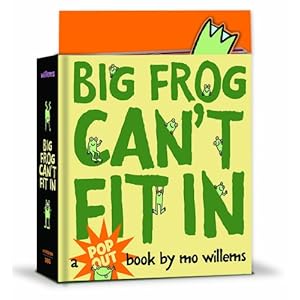
It started innocently enough. The first student grabbed his scissors and started making a huge character. The scissors, glue and paper were all over the floor. It wasn't long until the scissors came out again. This time for a shark and some small fish. Then scissors were out everywhere!

When I look around my classroom during Writer's Workshop I expect to see pencils, crayons, and colored pencils in everyone's hands, but scissors????

What to do?
Somehow I resisted uttering "put those scissors away". I suppose I resisted in part because it is the beginning of the year, but also because there was such a joy to their work. As I watched them cut shapes they were completely engaged in what they were doing. They were quite good at it as well. They meticulously cut airplanes, people, sharks, and other objects.
As I watched them work I saw possibility.
So I took a deep breath, started conferring, and listened. I asked the same beginning questions I usually ask in a first of year writing conference: "So tell me what you're working on today." "What's your story?" "What do you want everyone to know?" "Where'd you get your idea?". Honestly, I think many of the students made up their story as they were talking to me, but at this time of year that's really not any different than the students working on a flat sheet of paper with drawings and words. First graders are developing their sense of story and that's as it should be.

As I listened, I noticed something else. I was struck by their use of language as they began to weave their tales, MOVING characters to tell about events. Their sentence structures were longer, their details were greater, and their excitement over their stories was clearly visible.
So I decided to teach through it. I decided to follow the energy in the community and use it to strengthen our work as writers. I'm pretty sure Eric Carle cuts paper for his illustrations. Eric Hill uses flaps to make his Spot stories interesting. Mo Willems managed to finally fit a frog in a book.

Katie, of Creative Literacy, reminded me in a recent post titled "Listening for What Next" of the importance of observing and listening to children to see where they are as learners, and what they need next. So I'm looking for books in which illustrators have taken some risks - and pulled out a pair of scissors - so we can talk about the ways authors/illustrators choose to create interesting ways to share a story. I'm thinking there is much potential for developing oral language and strengthening our sense of story in this work.
If you have thoughts or book suggestions, please pass them along.
Oh the joy of first grade writers. Can I tell you that I miss it? :)
ReplyDeleteLOVE IT!!! Now I am going to be scoping out books with pop-up/ cut out type features. I had a little girl fascinated with this last year who often built a flap or pop-up feature in her stories. You named some great mentors. I can only think of repetitive books like Dear Zoo and Who Ate all the Cookie Dough (which have basic flaps). Can't wait to see what happens next!
ReplyDeleteA similar experience for me this week in our 5th grade writing workshop (no scissors involved, though). I had a plan in my head for where we were headed, knowing I had to devote lots of time next week to DRAs, but some of my students had other ideas. They want to publish pieces of choice while it's fresh and still so very important to them. Letting go is hard to do, but sometimes it's the best thing we can do to enable their creativity and enjoyment.
ReplyDeleteOur 1st graders and 5th graders are quite alike in that respect. :)
Ditto in fourth grade, but I made it happen intentionally. I gave them all a few photos of themselves and others from earlier in the year when we did bubbles in science and said, "Make something with these pictures and words." There are posters and museums and collages and comics and research about tornadoes...glorious variety
ReplyDeleteI love watching to see what kids do! Last year, I had my fourth graders put the characters from their personal narratives onto notecards, and then move them around to practice telling their stories. Their narratives had so much more development and dialogue than ever before.
ReplyDeleteHere's a blog post with a picture of what the students created:
http://emilykissner.blogspot.com/2010/03/planning-personal-narratives-events-and.html
I have also made little retelling figures for students to use as they retell stories. Just simple pictures will do. Sometimes students like to make their own, which is great! One enterprising student made little figures and had her classmates move them around while she read her story aloud.
I think scissors are a wonderful tool for writing workshop...
Ok, just bumped into Franki who found a new book called There was an old lady who swallowed some bugs and it is filled with cut paper type art. After looking at the illustrations you can easily see that scissors are involved. I think she posted about it today! Can't wait to see what happens with your kids creations!
ReplyDeleteI love the artistic side of books. Every time I review a book I find myself engaged in the illustrations/artwork as much as the wording. Off the top of my head, I can't think of any books with cut-outs but I know I've seen them, Eric Carle I would agree with, a lot of his work is collage.
ReplyDeleteIsn't it funny sometimes how teachers can be controlling? I'm glad you fought the urge to tell them to put away their scissors!!!! :)
Fabulous!
ReplyDeleteI really love it. Children's creative abilities always make us adults excited.:)